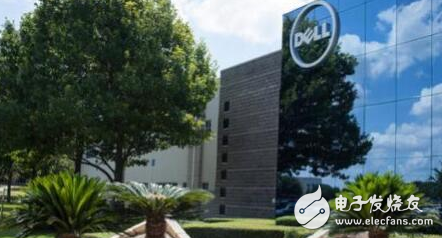The Internet of Things (IoT) market is now in a highly competitive phase, and even tech giant Dell Technology is showing strong confidence in this space. To back up its commitment, Dell has established a dedicated IoT division, signaling potential major developments over the next three years.
According to reports from international media, Dell recently announced the creation of a new IoT department focused on delivering smart devices for homes, factories, and automotive industries. These devices will leverage Dell’s own hardware and software solutions, reinforcing the company’s ecosystem approach.
At a press conference in New York, Dell CEO Michael Dell revealed that the company plans to invest $1 billion in research and development over the next three years to support this initiative. However, some industry analysts remain skeptical, arguing that given the massive scale of the IoT market, this amount might not be sufficient to secure a dominant position.
The new division will be led by Ray O’Farrell, Dell’s Chief Technology Officer, who has been tasked with steering the company’s IoT strategy.

Dell emphasized that its diverse portfolio—ranging from security software to cloud services—provides a solid foundation for the new division. The challenge lies in integrating these services into a user-friendly and efficient system. The IoT division aims to ensure seamless integration across all platforms.
For instance, Dell’s Virtustream business enables companies to manage their own private cloud data centers, which can act as local processing hubs and data storage points for IoT applications. Another key component is RSA, Dell’s network security service, which enhances data monitoring and analysis for IoT devices such as smart home appliances and factory robots.
Security experts are increasingly concerned about the risks associated with the rapid expansion of IoT devices. Last year, a major cyberattack exploited thousands of webcams and DVRs, using them as part of a botnet to launch large-scale DDoS attacks on popular websites like Twitter, PayPal, and Spotify.
In response, many IT leaders are advocating for more localized computing power within IoT devices, especially in critical systems like self-driving cars. As Dell humorously put it, “If a deer suddenly jumps in front of your self-driving car, you wouldn’t want to wait for the cloud to process the information—it might be too late for your dinner.â€
Dell’s strength lies in combining local data processing with centralized cloud infrastructure, an area where it has extensive experience. However, unlike Amazon AWS or Google Cloud, Dell doesn’t offer large-scale public cloud services. This means the company must emphasize its edge computing capabilities to stay competitive.
Ray O’Farrell highlighted the importance of local processing: “For certain applications, sending data to a public cloud could take too long—especially when seconds matter.â€
With major players like Microsoft, Amazon, and Google already pushing their cloud-based IoT solutions, Dell’s move to create a dedicated IoT division reflects its strategic effort to carve out a unique position in the market.
Patrick Moorhead, president of Moor Insights and Technology, noted that both Dell and Hewlett-Packard are taking a distributed approach to IoT. He added, “The key difference is that Dell offers comprehensive services across infrastructure, management, and development levels.â€
Outdoor Network Cabinet,Telecommunications Industry,Industrial Cabinet,Electrical Enclosure
Guangdong Yuqiu Intelligent Technology Co.,Ltd , https://www.cntcetltd.com